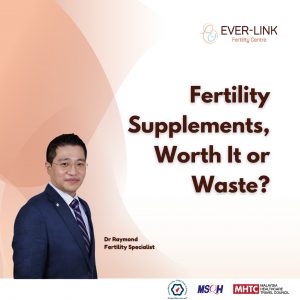
When struggling with fertility, it’s easy to get lost in the endless stream of advice, especially when it comes to supplements. A quick internet search will bring up countless products promising to boost fertility, balance hormones, and increase the chances of conception. But which ones actually work? And which are just clever marketing tactics designed to sell hope in a bottle? Let’s break it down.
The Science-Backed Supplements:
While no supplement is a magic fix, certain nutrients do play a role in reproductive health. Here are some that have been shown to support fertility:
- Folic Acid
Most commonly associated with pregnancy health, folic acid is actually important before conception too. It supports cell growth and helps prevent neural tube defects in babies. Many doctors recommend 400–800 mcg daily for women trying to conceive.
- Coenzyme Q10 (CoQ10)
As women age, egg quality tends to decline. CoQ10, an antioxidant, has been studied for its potential role in improving egg health, especially in women over 35. While research is ongoing, some fertility specialists suggest adding it to your regimen.
- Vitamin D
Low vitamin D levels have been linked to infertility in both men and women. Since many people have insufficient levels without realizing it, a simple blood test can determine if supplementation is needed.
- Omega-3 Fatty Acids
These healthy fats, found in fish oil, support hormone balance and may improve egg and sperm quality. Since they also reduce inflammation, they play a role in overall reproductive health.
- Iron
Iron deficiency can impact ovulation and lead to irregular cycles. Women with heavy periods are particularly prone to low iron levels, making supplementation important for maintaining fertility.
- Zinc
Zinc is crucial for both male and female fertility. It plays a role in egg maturation and helps maintain sperm health. Since the body doesn’t store zinc, regular intake through diet or supplements is necessary.
The Overhyped or Questionable Supplements
Not all fertility supplements are backed by strong evidence. Some are promoted based on anecdotal success stories rather than science. Here are a few that deserve scrutiny:
- DHEA
DHEA, a hormone precursor, is sometimes recommended for women with diminished ovarian reserve. While some studies show promise, DHEA supplementation should only be taken under medical supervision, as excessive amounts can throw off hormone balance.
- Royal Jelly
This bee-derived supplement is often praised for its supposed fertility-boosting effects. However, scientific research confirming its benefits is minimal. It’s generally safe, but it might not do much beyond providing extra vitamins.
- Vitex (Chaste Tree Berry)
Vitex is often used to regulate hormones and support ovulation. While some women with irregular cycles find it beneficial, there’s limited research on its effectiveness for fertility. For those with balanced hormone levels, it may not provide any additional benefits.
- “Fertility Blends”
Many supplements marketed as “fertility blends” contain a mix of various vitamins and herbs. Some include helpful nutrients like folic acid and CoQ10, but others rely on ingredients with little scientific backing. Always check the individual components and avoid products with unnecessary additives.
Do You Really Need Supplements?
While supplements can provide support, they aren’t a substitute for a healthy lifestyle. Fertility is influenced by numerous factors, including diet, stress, sleep, and medical conditions. Before taking supplements, consider the following:
✔ Get Blood Tests – Find out if you have any deficiencies before adding supplements to your routine.
✔ Consult a Doctor – A fertility specialist can guide you based on your unique health needs.
✔ Focus on Nutrition – A balanced diet rich in whole foods will provide many of the essential vitamins you need naturally.
Supplements can help support fertility, but they aren’t a guarantee. Some have strong scientific backing, while others are more hype than help. The best approach? Get informed, consult a doctor, and make choices that align with your body’s needs.
At the end of the day, fertility is a journey, one that goes beyond pills and powders. And no matter where you are in that journey, you deserve kindness, patience, and the knowledge to make choices that truly support you.

